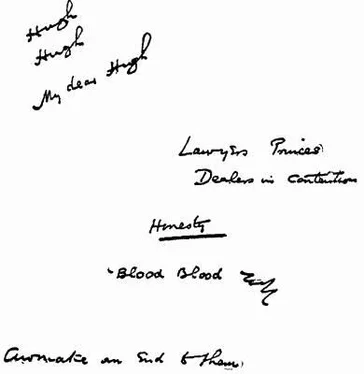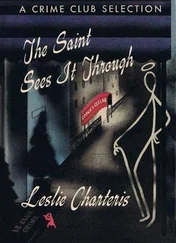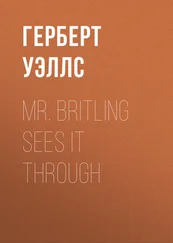Herbert Wells - Mr. Britling Sees It Through
Здесь есть возможность читать онлайн «Herbert Wells - Mr. Britling Sees It Through» весь текст электронной книги совершенно бесплатно (целиком полную версию без сокращений). В некоторых случаях можно слушать аудио, скачать через торрент в формате fb2 и присутствует краткое содержание. Жанр: Классическая проза, на английском языке. Описание произведения, (предисловие) а так же отзывы посетителей доступны на портале библиотеки ЛибКат.
- Название:Mr. Britling Sees It Through
- Автор:
- Жанр:
- Год:неизвестен
- ISBN:нет данных
- Рейтинг книги:4 / 5. Голосов: 1
-
Избранное:Добавить в избранное
- Отзывы:
-
Ваша оценка:
- 80
- 1
- 2
- 3
- 4
- 5
Mr. Britling Sees It Through: краткое содержание, описание и аннотация
Предлагаем к чтению аннотацию, описание, краткое содержание или предисловие (зависит от того, что написал сам автор книги «Mr. Britling Sees It Through»). Если вы не нашли необходимую информацию о книге — напишите в комментариях, мы постараемся отыскать её.
Mr. Britling Sees It Through — читать онлайн бесплатно полную книгу (весь текст) целиком
Ниже представлен текст книги, разбитый по страницам. Система сохранения места последней прочитанной страницы, позволяет с удобством читать онлайн бесплатно книгу «Mr. Britling Sees It Through», без необходимости каждый раз заново искать на чём Вы остановились. Поставьте закладку, и сможете в любой момент перейти на страницу, на которой закончили чтение.
Интервал:
Закладка:
Such were the appearances of things. Can it be wondered if it seemed to the German mind that the moment for the triumphant assertion of the German predominance in the world had come? A day or so before the Dublin shooting, the murder of Sarajevo had been dragged again into the foreground of the world's affairs by an ultimatum from Austria to Serbia of the extremest violence. From the hour when the ultimatum was discharged the way to Armageddon lay wide and unavoidable before the feet of Europe. After the Dublin conflict there was no turning back. For a week Europe was occupied by proceedings that were little more than the recital of a formula. Austria could not withdraw her unqualified threats without admitting error and defeat, Russia could not desert Serbia without disgrace, Germany stood behind Austria, France was bound to Russia by a long confederacy of mutual support, and it was impossible for England to witness the destruction of France or the further strengthening of a loud and threatening rival. It may be that Germany counted on Russia giving way to her, it may be she counted on the indecisions and feeble perplexities of England, both these possibilities were in the reckoning, but chiefly she counted on war. She counted on war, and since no nation in all the world had ever been so fully prepared in every way for war as she was, she also counted on victory.
One writes "Germany." That is how one writes of nations, as though they had single brains and single purposes. But indeed while Mr. Britling lay awake and thought of his son and Lady Frensham and his smashed automobile and Mrs. Harrowdean's trick of abusive letter-writing and of God and evil and a thousand perplexities, a multitude of other brains must also have been busy, lying also in beds or sitting in studies or watching in guard-rooms or chatting belatedly in cafés or smoking-rooms or pacing the bridges of battleships or walking along in city or country, upon this huge possibility the crime of Sarajevo had just opened, and of the state of the world in relation to such possibilities. Few women, one guesses, heeded what was happening, and of the men, the men whose decision to launch that implacable threat turned the destinies of the world to war, there is no reason to believe that a single one of them had anything approaching the imaginative power needed to understand fully what it was they were doing. We have looked for an hour or so into the seething pot of Mr. Britling's brain and marked its multiple strands, its inconsistencies, its irrational transitions. It was but a specimen. Nearly every brain of the select few that counted in this cardinal determination of the world's destinies, had its streak of personal motive, its absurd and petty impulses and deflections. One man decided to say this because if he said that he would contradict something he had said and printed four or five days ago; another took a certain line because so he saw his best opportunity of putting a rival into a perplexity. It would be strange if one could reach out now and recover the states of mind of two such beings as the German Kaiser and his eldest son as Europe stumbled towards her fate through the long days and warm, close nights of that July. Here was the occasion for which so much of their lives had been but the large pretentious preparation, coming right into their hands to use or forgo, here was the opportunity that would put them into the very forefront of history forever; this journalist emperor with the paralysed arm, this common-fibred, sly, lascivious son. It is impossible that they did not dream of glory over all the world, of triumphant processions, of a world-throne that would outshine Caesar's, of a godlike elevation, of acting Divus Caesar while yet alive. And being what they were they must have imagined spectators, and the young man, who was after all a young man of particularly poor quality, imagined no doubt certain women onlookers, certain humiliated and astonished friends, and thought of the clothes he would wear and the gestures he would make. The nickname his English cousins had given this heir to all the glories was the "White Rabbit." He was the backbone of the war party at court. And presently he stole bric-à-brac. That will help posterity to the proper values of things in 1914. And the Teutonic generals and admirals and strategists with their patient and perfect plans, who were so confident of victory, each within a busy skull must have enacted anticipatory dreams of his personal success and marshalled his willing and unwilling admirers. Readers of histories and memoirs as most of this class of men are, they must have composed little eulogistic descriptions of the part themselves were to play in the opening drama, imagined pleasing vindications and interesting documents. Some of them perhaps saw difficulties, but few foresaw failure. For all this set of brains the thing came as a choice to take or reject; they could make war or prevent it. And they chose war.
It is doubtful if any one outside the directing intelligence of Germany and Austria saw anything so plain. The initiative was with Germany. The Russian brains and the French brains and the British brains, the few that were really coming round to look at this problem squarely, had a far less simple set of problems and profounder uncertainties. To Mr. Britling's mind the Round Table Conference at Buckingham Palace was typical of the disunion and indecision that lasted up to the very outbreak of hostilities. The solemn violence of Sir Edward Carson was intensely antipathetic to Mr. Britling, and in his retrospective inquiries he pictured to himself that dark figure with its dropping under-lip, seated, heavy and obstinate, at that discussion, still implacable though the King had but just departed after a little speech that was packed with veiled intimations of imminent danger...
Mr. Britling had no mercy in his mind for the treason of obstinate egotism and for persistence in a mistaken course. His own temperamental weaknesses lay in such different directions. He was always ready to leave one trail for another; he was always open to conviction, trusting to the essentials of his character for an ultimate consistency. He hated Carson in those days as a Scotch terrier might hate a bloodhound, as something at once more effective and impressive, and exasperatingly, infinitely less intelligent.
§ 4
Thus—a vivid fact as yet only in a few hundred skulls or so—the vast catastrophe of the Great War gathered behind the idle, dispersed and confused spectacle of an indifferent world, very much as the storms and rains of late September gathered behind the glow and lassitudes of August, and with scarcely more of set human intention. For the greater part of mankind the European international situation was at most something in the papers, no more important than the political disturbances in South Africa, where the Herzogites were curiously uneasy, or the possible trouble between Turkey and Greece. The things that really interested people in England during the last months of peace were boxing and the summer sales. A brilliant young Frenchman, Carpentier, who had knocked out Bombardier Wells, came over again to defeat Gunboat Smith, and did so to the infinite delight of France and the whole Latin world, amidst the generous applause of Anglo-Saxondom. And there was also a British triumph over the Americans at polo, and a lively and cultured newspaper discussion about a proper motto for the arms of the London County Council. The trial of Madame Caillaux filled the papers with animated reports and vivid pictures; Gregori Rasputin was stabbed and became the subject of much lively gossip about the Russian Court; and Ulivi, the Italian impostor who claimed he could explode mines by means of an "ultra-red" ray, was exposed and fled with a lady, very amusingly. For a few days all the work at Woolwich Arsenal was held up because a certain Mr. Entwhistle, having refused to erect a machine on a concrete bed laid down by non-unionists, was rather uncivilly dismissed, and the Irish trouble pounded along its tiresome mischievous way. People gave a divided attention to these various topics, and went about their individual businesses.
Читать дальшеИнтервал:
Закладка:
Похожие книги на «Mr. Britling Sees It Through»
Представляем Вашему вниманию похожие книги на «Mr. Britling Sees It Through» списком для выбора. Мы отобрали схожую по названию и смыслу литературу в надежде предоставить читателям больше вариантов отыскать новые, интересные, ещё непрочитанные произведения.
Обсуждение, отзывы о книге «Mr. Britling Sees It Through» и просто собственные мнения читателей. Оставьте ваши комментарии, напишите, что Вы думаете о произведении, его смысле или главных героях. Укажите что конкретно понравилось, а что нет, и почему Вы так считаете.






